brain/nerve health
How To Manage Migraines Without Meds
A retired captain with the NYC Fire Department fights back after a devastating diagnosis.
6 min read
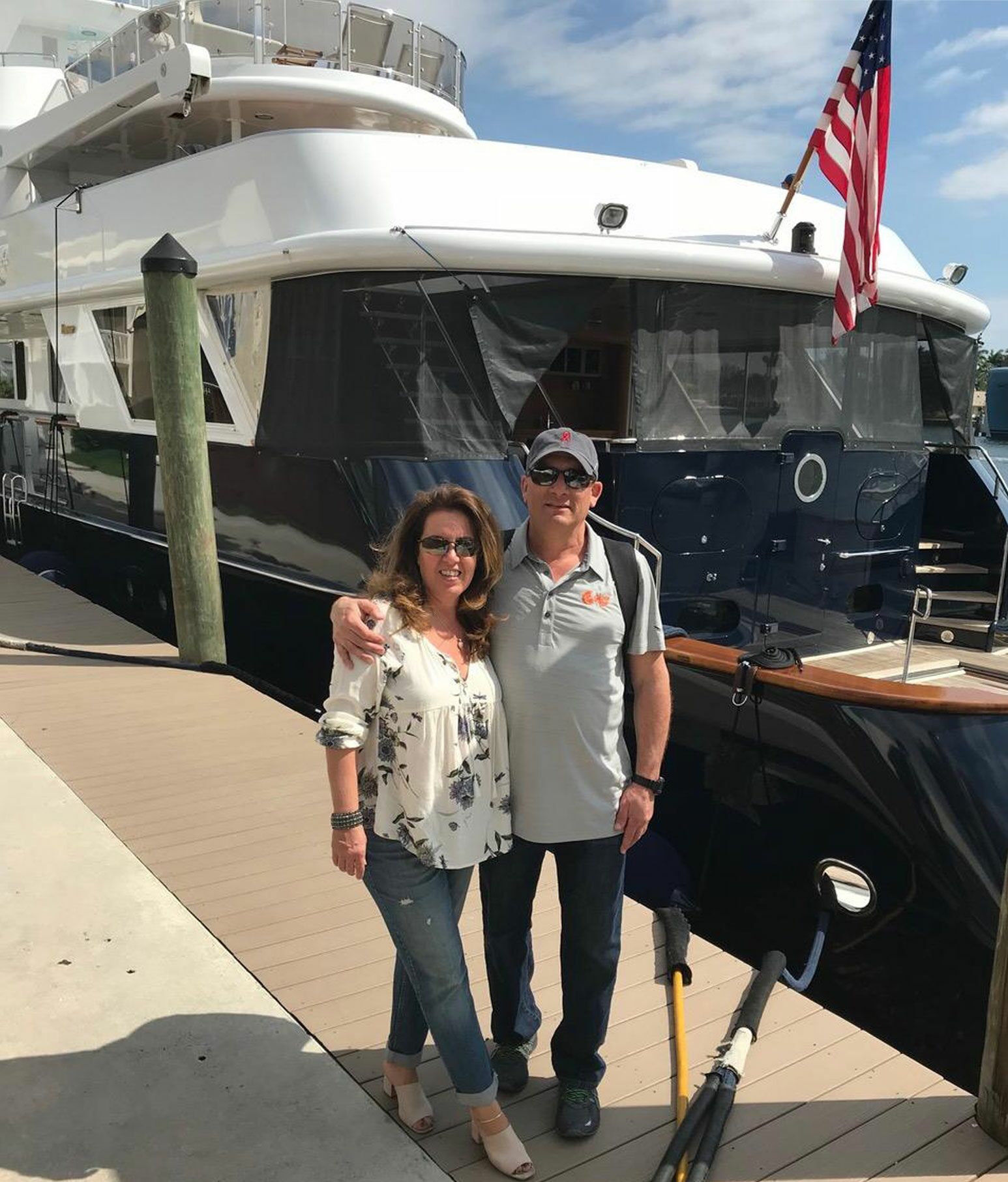
Steve: When you’re in the middle of an ordinary day, you never imagine that your life is about to change forever. It was a rainy Sunday in October, and my wife Debra and I had just come back from a wonderful trip to Barbados. I’d retired from the New York City Fire Department just five months earlier, so we were puttering around the house, not doing much. Debra noticed a leak in the boiler room, so I decided to clean the gutters. It was raining outside and she begged me to wait until later. But I’m kind of a stubborn guy and when something needs to get done, I do it.
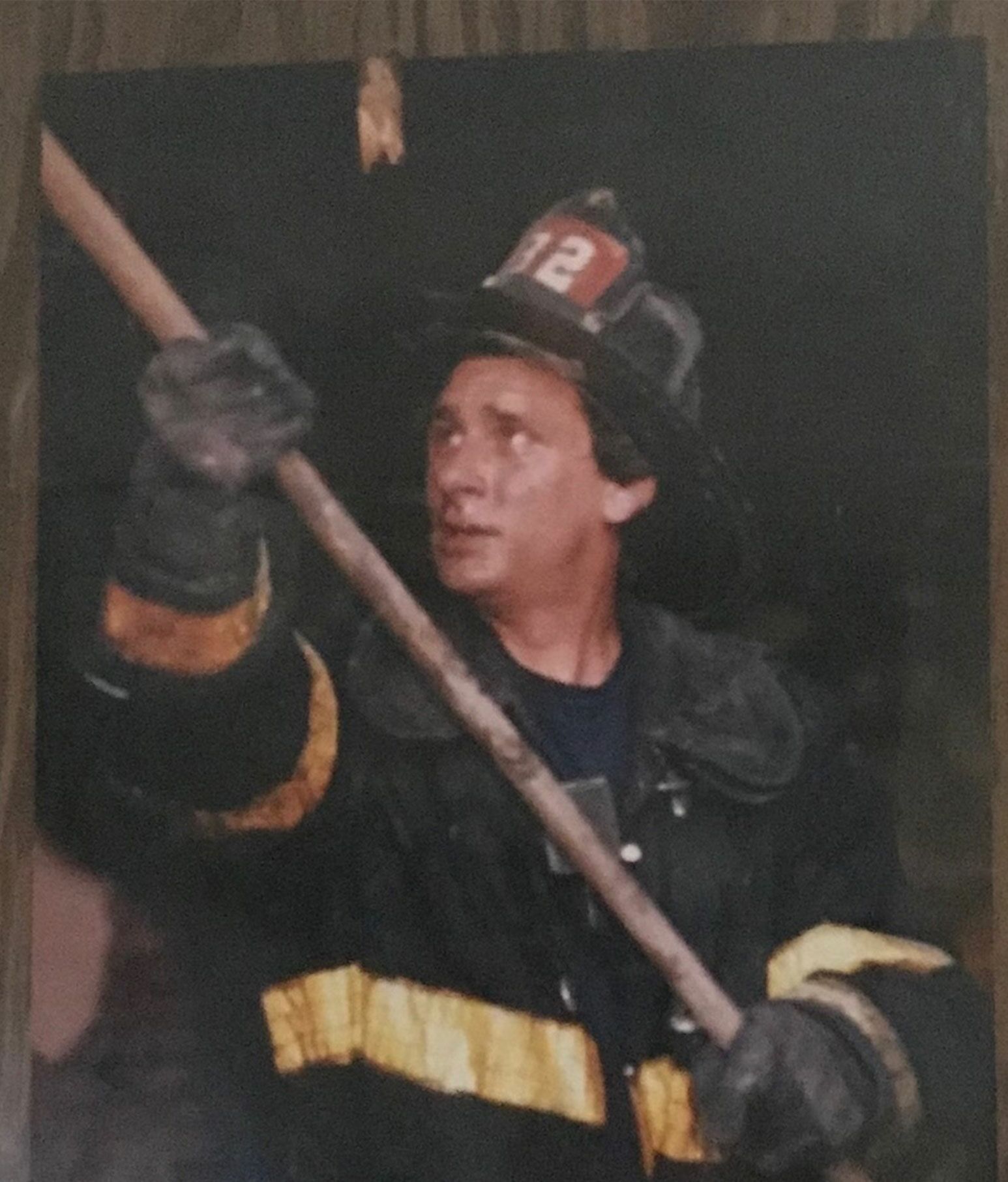
I was halfway up the ladder, in the pouring rain, when I suddenly felt dizzy. Debra saw me wobble and called to me to get off the ladder. I took one step down and I passed out. When I woke up, I was lying on the ground, my neighbor cradling my head and my wife frantically hovering over me. I felt sicker than I ever had. They had called an ambulance and I threw up all over the place on the way to the hospital. And the pain—it was a headache like I never imagined possible. I was so scared. I had no idea what was going on.
Debra: When Steve passed out, he fell forward onto the ladder. I attribute that instinct to his firefighter training. If he’d fallen backward, this would be an entirely different story. I was holding him onto the ladder and screaming for the neighbors to come help me get him down. They wouldn’t let me ride in the ambulance with him because they had someone training that day, so I had to drive over with my sister-in-law, Sandra, terrified every minute of the way. As soon as we got to the hospital they took him in for a CT scan and we learned he had a bleed in his brain. I told them I wanted him transferred to Northwell Health’s North Shore University Hospital. I was frantic. Did he have hours, minutes, seconds?
We met Dr. David Chalif, chief of the division of neurosurgery, who told us that Steve had a brain aneurysm that had ruptured. He would need brain surgery—a craniotomy. They showed me the scans, but I couldn’t focus. “I have no idea what you’re showing me. Just do what you need to do to bring him back to me,” was all I could say. Steve was crying over and over that his head hurt. It was terrifying.
His surgery was the longest seven hours of my life. I must have paced the whole length of that hospital. Finally, Dr. Chalif came out and said that everything had gone perfectly. I can’t believe how close we came to losing him. I felt like someone must have been watching out for us. We lost our older daughter, Loren, a few years ago, and I truly believe she was the angel on his shoulder all the way from the ladder and throughout the operation.
Steve: Debra had the worst of it while I was in surgery. She had to deal with all the unknowns. I think she probably got more than a few more gray hairs during those first 24 hours. Me, I was under anesthesia the whole time. I woke up in the ICU later that day, bandaged up, with a drain in my head and tubes sticking out everywhere. I was pretty much immobilized for the first couple of days, with terrible headaches that they tried to manage with ice packs and medication. But eventually I started to feel better. After two days I was able to get up and move around a bit.
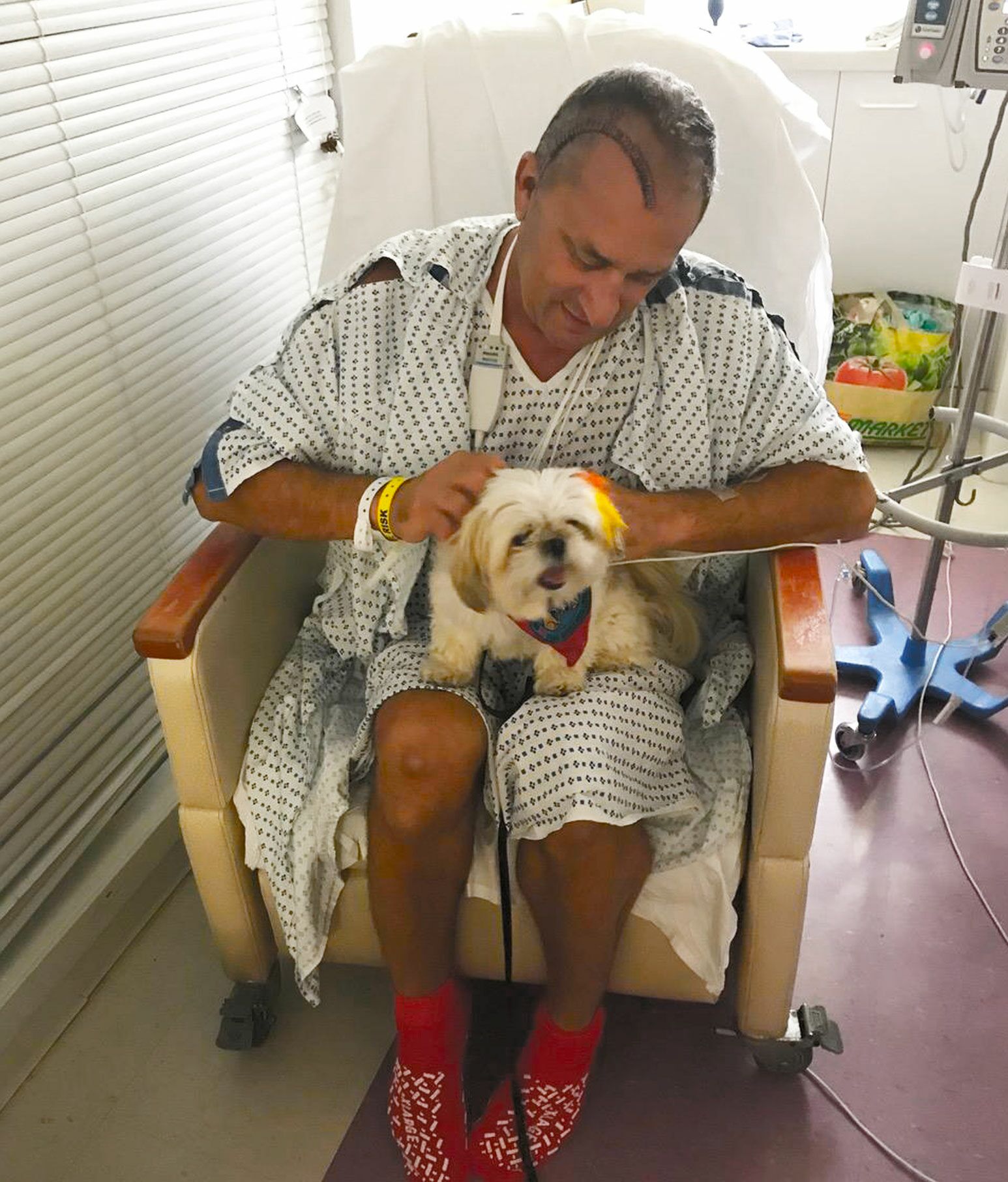
I spent 13 long days in the ICU, and Debra never left my side—she slept in that room with me, ate her meals there, everything. The doctors came in all the time to run tests—they didn’t know what, if any, brain function I might have lost. But much to their surprise (and ours), I passed every neurological test they gave me.
My recovery was a frustratingly slow process. My wife and daughter, Amanda, would encourage me to take it easy and not do too much too soon, but I wouldn’t have it. I didn’t want to let anything stop me. I worked hard and it paid off.
Debra: I wish they’d prepared me for what Steve was going to look like when they took the bandage off his head! He had a scar all along the side and he really did look like Frankenstein. I can’t imagine the expression on my face because he looked at me looking at him and said, “What’s the matter?!” I told him that I wasn’t sure he’d want to look at it, but he insisted. It was very upsetting to see at first—but in reality, they did a beautiful job, and now you wouldn’t even know it was there.
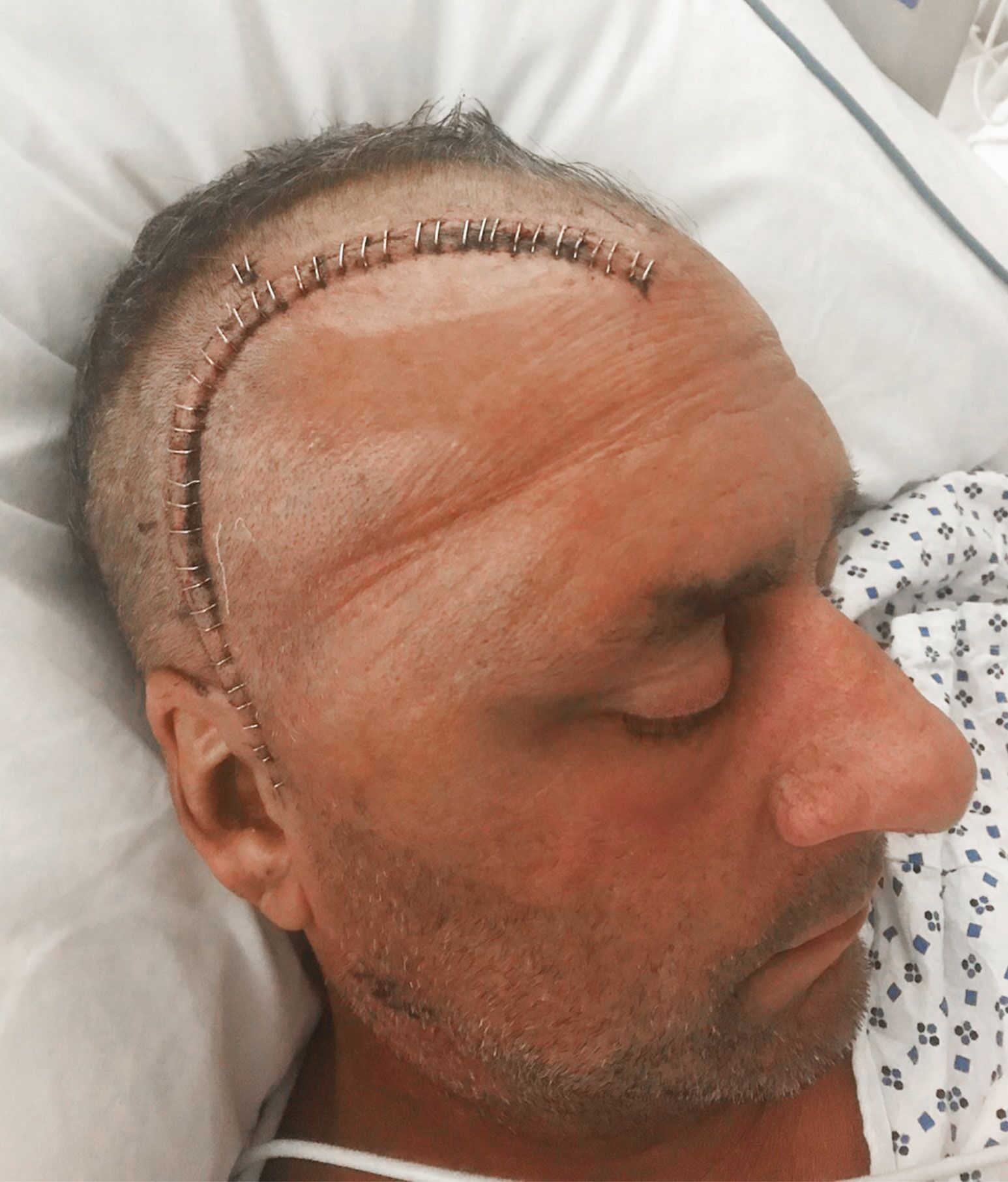
I couldn’t stop thinking about all the “what ifs.” What if it had happened while we were in Barbados and far away from a top-notch hospital? What if it had happened five months earlier on the job, inside a burning building? It’s crazy to say when your husband has had a brain aneurysm, but we really were so lucky.
Steve: They treated us so well in the hospital, but there’s nothing like being home and I couldn’t wait to get out of there. I was so fortunate—I was discharged without any need for medications. The only thing I had was the wound on my head. I didn’t even need to go back for outpatient rehabilitation.
Today, I’m living my normal life, although I’m obviously a little more careful with certain things—not that I was a daredevil before, but sometimes I’d push the limits. I don’t do that anymore. I still ski in Vermont every weekend in the winter, but I don’t fly down the trails as aggressively as I used to. We’re movers, but I’ve had to learn to take it down a notch.
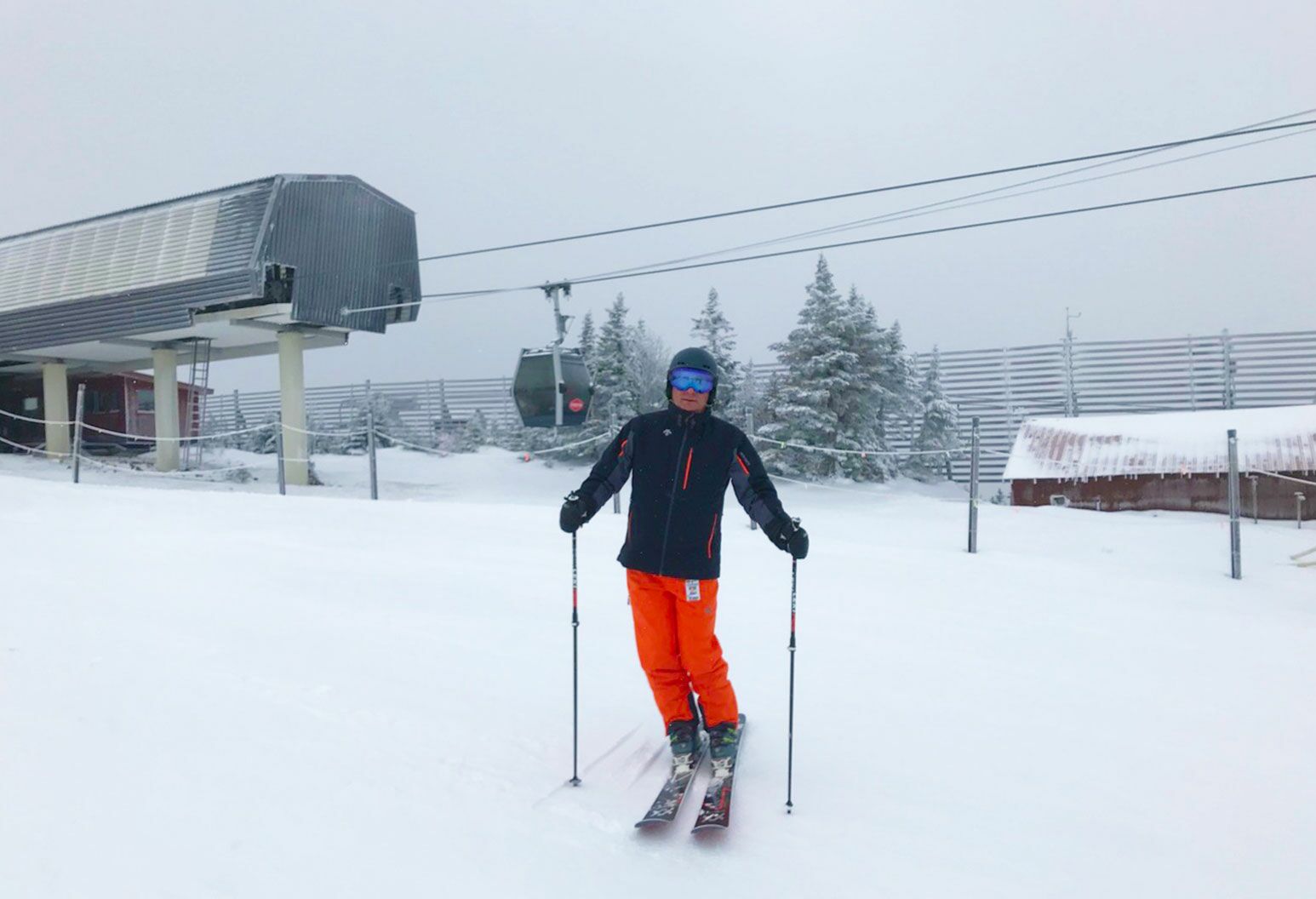
And we spend time raising money and awareness for brain aneurysm screenings. Last year our team raised over $4,000 for the Brain Aneurysm Foundation.
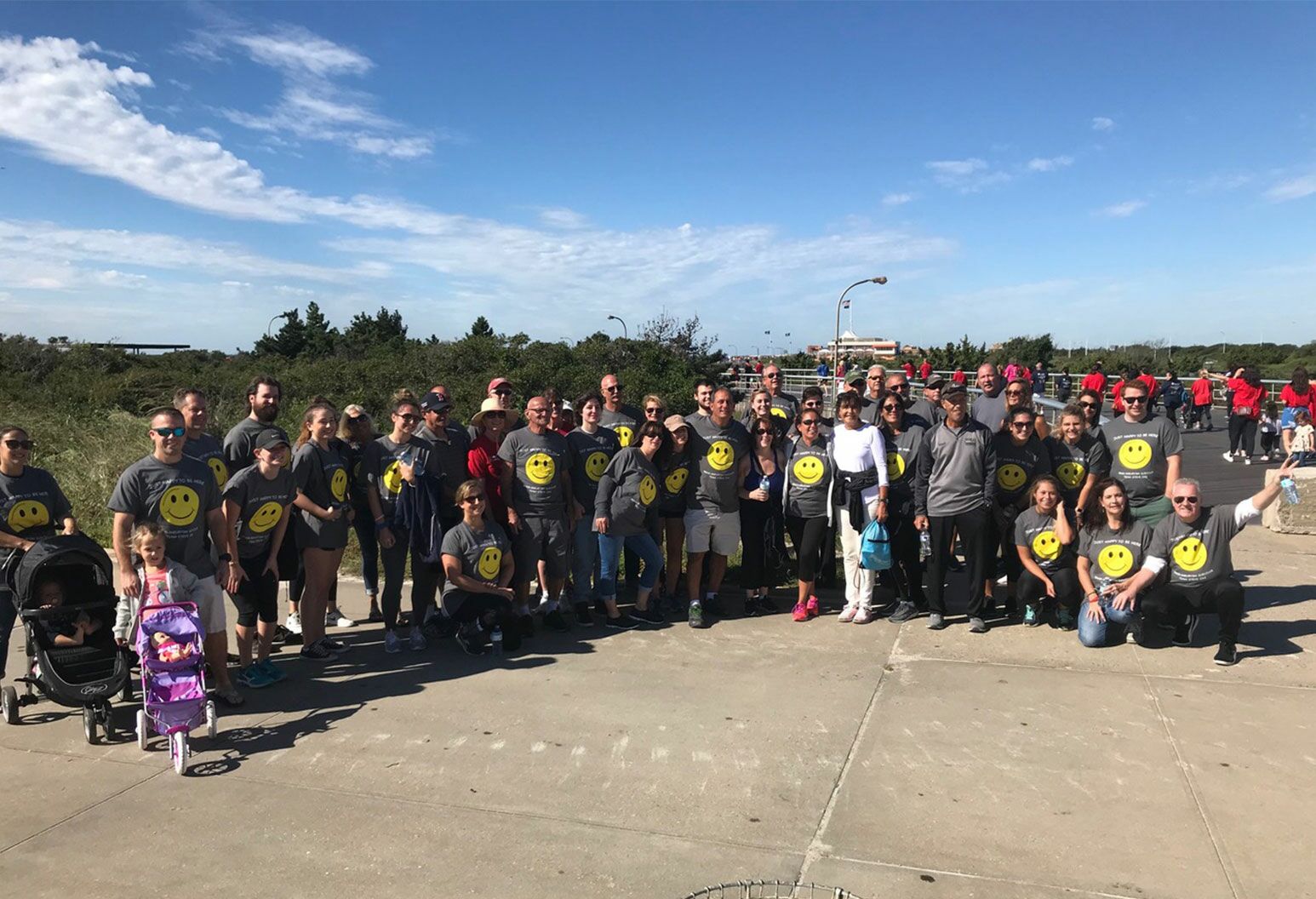
I don’t really notice any differences cognitively, but my family does occasionally see certain subtle deficiencies in my memory. They’ll say that I “zone out” sometimes—just little things. And I do get sharp head pains once in a while, because there are probably still nerve endings in there rebuilding themselves. It’s a reminder that I could have had this aneurysm, just a bubble on a blood vessel, waiting inside me for years. And that you can’t take anything for granted.

The Well is Northwell Health’s commitment to the future of health care. In this time of information overabundance, much of which is inaccurate, unhelpful, or even difficult to understand, Northwell Health is on a mission to make a difference as an honest, trusted, and caring partner. The site connects with consumers to provide them with personalized content that reduces their stress, makes them laugh, and ultimately feel more confident and capable on their healthcare journey.